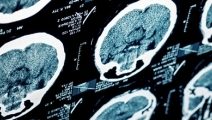
George Institute research changes stroke treatment guidelines in US
A landmark study from The George Institute for Global Health for the treatment of stroke patients has resulted in key changes being made in US medical guidelines.
The Intensive Blood Pressure Reduction in Acute Cerebral Haemorrhage Trial (INTERACT 2) had a direct influence over these changes in guidelines that will now see a dramatic shift in treatment, resulting in doctors recommending a more intensive control of blood pressure in all types of patients with haemorrhagic stroke.
The research showed that intensive blood pressure lowering in patients, early after the onset of stroke due to rupture of blood vessels within the brain, reduced the risk of subsequent major disability and improved the chances of recovery by as much as 15 per cent.
Professor Craig Anderson of The George Institute and the University of Sydney, and neurologist at Royal Prince Alfred Hospital in Sydney, said these changes in US guidelines speak to the high quality, high impact work of the institute.
“The US stroke guidelines mean a shift in the treatment of hypertension in patients with haemorrhagic stroke, so that they are provided with a safe and more efficient control of elevated blood pressure to improve the likelihood of recovery without serious disability.
“Before now, the main treatment options for this serious type of stroke were simply bed rest, brain surgery for a few, and rehabilitation, with much controversy over whether there were any benefits or harms of early intensive blood pressure lowering treatment to reduce bleeding in the brain. So, our research is a very welcome advance in resolving uncertainty and developing treatment policy.”
“We hope to see hospital emergency departments and stroke services around the world implement the new treatment as soon as possible, with the US being the first to embrace the significance of this research.”
Intracerebral haemorrhage affects over 6000 Australians each year, accounting for 10 per cent of all strokes in Australia. Of this number, one third die as a result and most survivors are left with disability.
The findings of INTERACT 2 were published in the prestigious New England Medical Journal of Australia in May, 2013.


